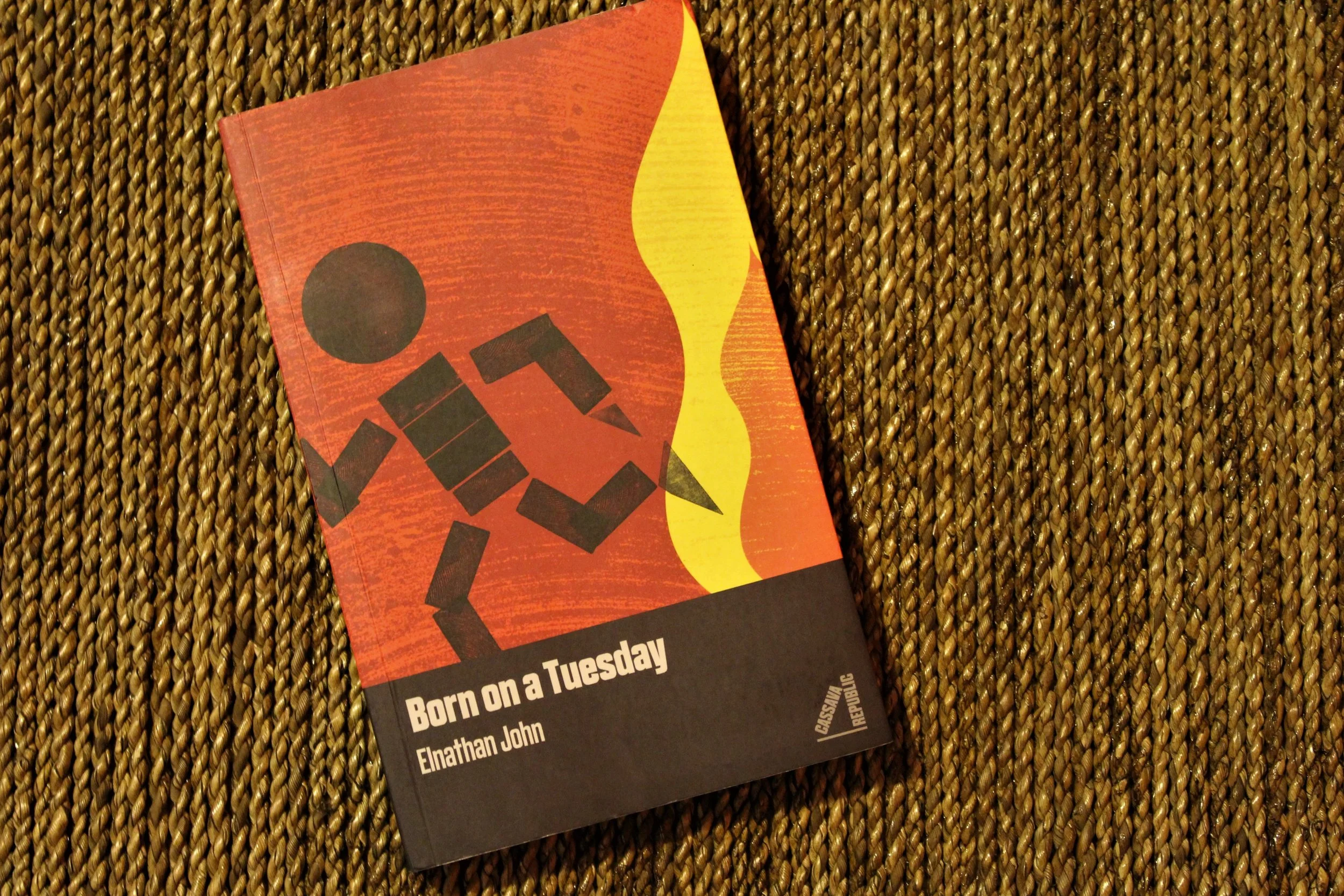Born on a Tuesday|Elnathan John
Shayera Dark
Born on a Tuesday, Elnathan John’s debut novel, is a coming-of-age story set in northern Nigeria. Its simple, unembellished prose is narrated by Dantala, a smart, inquisitive street kid and Islamic scholar.
Following his Koranic studies, Dantala joins the gang of orphans and homeless boys his former instructor had criticized for visiting the mosque only on Fridays for free food. When the gang is hired by the Small Party to rig votes and intimidate members of the Big Party on the promise of building them a shelter, Dantala wonders if they’ll keep their word.
“…all I want is that they pay every time they ask us to work for them,” replies the gang leader, aware that the political party will renege on their promise.
On the gang leader’s command, the boys set the Big Party’s office on fire. With the police in pursuit, Dantala flees the village to the city of Sokoto, where he meets the moderate imam Sheikh Jamal and his ultraconservative deputy Abdul-Nur. Abdul-Nur promptly christens him Ahmad.
“Dantala is not a name,” Adbul-Nur says. “To say that someone was born on a Tuesday, is that a name?”
Shortly after Dantala takes up residence on the mosque’s premises, Abdul Nur’s brother Jibril moves in. The pair becomes fast friends, with Jibril patiently helping Dantala learn English and Dantala teaching him Arabic. Adventurous by nature, Jibril circumvents strict religious observances, buying football newspapers, having premarital sex and committing other acts considered haram. His errant reputation would earn him severe beatings from Abdul-Nur and lend credibility to Dantala’s lie regarding the ownership of a women’s magazine Sheikh later finds in their bedroom.
“It is OK,” Jibril tells Dantala after he apologizes for the fib. “I already admitted the book is mine. [Abdul-Nur] has beaten me already.”
When gunmen target Sheikh, Dantala’s stable life in Sokoto is violently upended. Abdul-Nur would blame Shiites for the attack and, ignoring Sheikh’s plea for peace, call on his followers to retaliate. A riot ensues between Sunni and Shia Muslims and, in a bid to cool heads, Sheikh sends Abdul-Nur off to Saudi Arabia, a move that ultimately proves fatal.
Born on a Tuesday elegantly weaves themes of friendship, loyalty, betrayal and bigotry as seen when Abdul-Nur founds of a radical Islamic sect that denounces Western education, Sheikh’s colleague chalks his betrayal up to ethnicity.
“A Yoruba man is a Yoruba man. No matter how Muslim they become. They stab you in the back.”
Not even the tolerant Sheik is exempt from bias, which is reflected in his unflattering views about the Shiite mode of worship and in his calls for followers to vote a Muslim president.
Without being preachy, John’s novel mirrors some of the ills plaguing Nigeria and presents a convincing picture of how poverty, corruption and brutality perpetrated by security forces have bred disaffection and insurgency groups like Boko Haram. Each character is a mass of contradictions and flaws that still inspires sympathy, lending an impressive realism to Born on a Tuesday.
Readers looking for an insightful and entertaining page-turner grounded in reality will not be disappointed.
A version of this review appeared in the Mar-May 2018 issue of Inzozi, Rwandair's in-flight magazine.
You May Also Like











